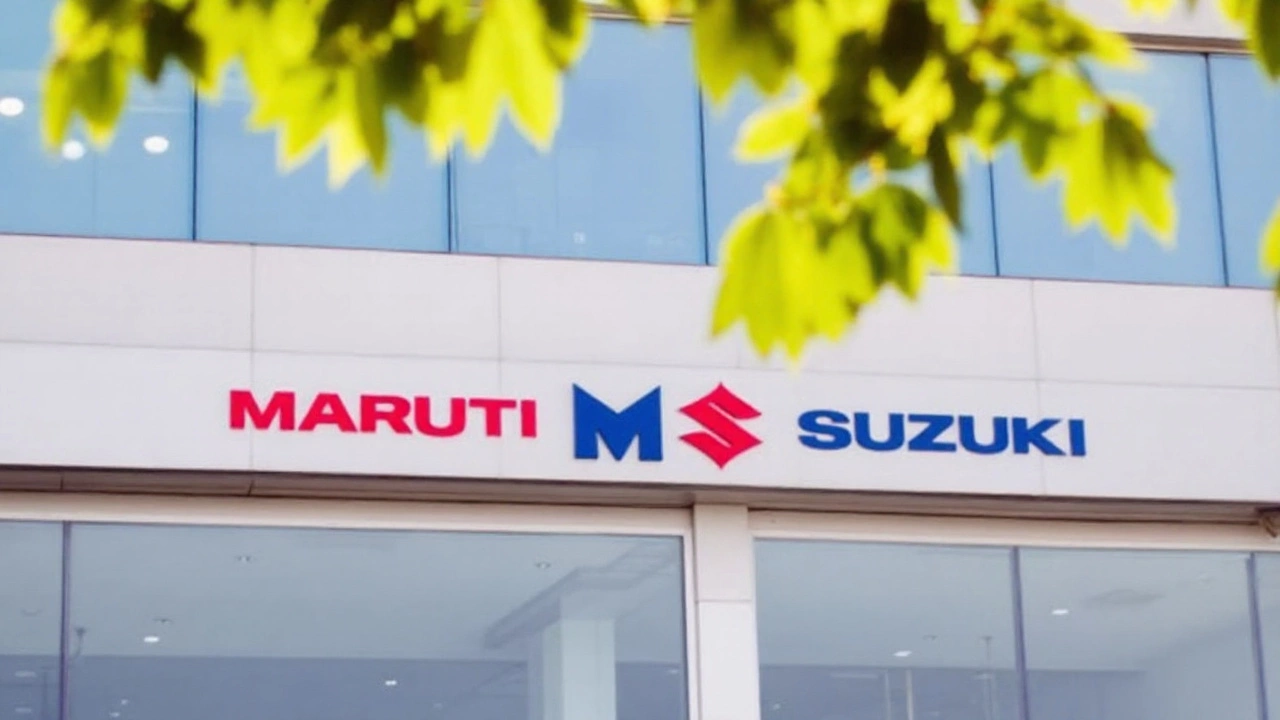Maruti Suzuki Stock Soars 9% Amid GST Cut Buzz, Notching Five-Year Record High
 Aug, 19 2025
Aug, 19 2025
Maruti Suzuki's Blockbuster Surge: What Sparked This Unprecedented Rally?
Maruti Suzuki didn’t just have a good day on August 18, 2025—it broke its own record books. Shares of India’s largest carmaker jumped a staggering 9%, settling at Rs 14,075 on the Bombay Stock Exchange, up from Rs 12,920 just a day before. That’s not something investors have seen in nearly five years. By the end of trade, Maruti Suzuki's market cap ballooned to an eye-popping Rs 4.42 lakh crore. Not many companies can say they’ve pulled off a move like this overnight.
So, what’s revving up this runaway rally? It’s all about the hopes of a major GST rate cut. Right now, cars in India get hit with a 28% GST—plus extra charges for certain models. But talks are getting serious about slashing this tax to 18% for smaller cars, especially those with engines below 1,200cc. That’s basically the bread and butter of Maruti Suzuki’s lineup. On top of that, smaller hybrid vehicles—petrol engines under 1,200cc and diesel under 1,500cc—could also dodge the higher taxes if these ideas turn into reality.

How a GST Cut Could Reshape the Indian Auto Scene
To understand the excitement, you’ve got to look at what Maruti Suzuki sells. The company has always dominated the small car space—think models like the Swift, Baleno, and WagonR—and hybrid options thrown into the mix. If smaller cars become cheaper because of a GST cut, it means more buyers can actually afford them. Tack on the fact that these cars are already seen as fuel-efficient and easy to maintain, and you've got a recipe for surging sales.
Analysts from Morgan Stanley and Nomura aren’t mincing words: they think Maruti Suzuki, as well as Mahindra & Mahindra, would be the top gainers here. Morgan Stanley’s team pointed out that automobiles make up about 14% of the country’s total GST collection, and most of that comes from vehicles getting charged at the top 28% rate. The numbers really start getting interesting when you look at the past—after a tax cut in 2008, the auto sector saw its demand climb by about 20%. There’s every reason to believe something similar could happen again.
If the new GST rates become law, the auto sector could see a 15% to 20% spike in sales almost overnight, according to leading brokerages. Lower taxes mean lower prices right at the dealer level, and that spells good news for anyone eyeing a new ride. Maruti Suzuki’s business is based on moving huge volumes, so even a small uptick in demand turns into a big payday for them.
The rally isn’t just a short-term fluke. In just one week, Maruti’s stock has leaped by over 10%. Investors clearly believe that positive changes in tax policy could kick off a new boom cycle—not just for Maruti, but across India’s car market.
Another angle to this surge is the company’s debt-free status, achieved just this year after five long years. Costs are in check and they've kept a lid on interest and staffing expenses. Put that together with more affordable cars on the market, and you start to see why so many investors are betting big.
All eyes are now on policymakers and the GST Council. If they push the rate cut through, not only will Maruti Suzuki secure its frontrunner status, but the entire automotive industry could be looking at a brand-new chapter—one where more middle-class families can finally think about buying their first car.